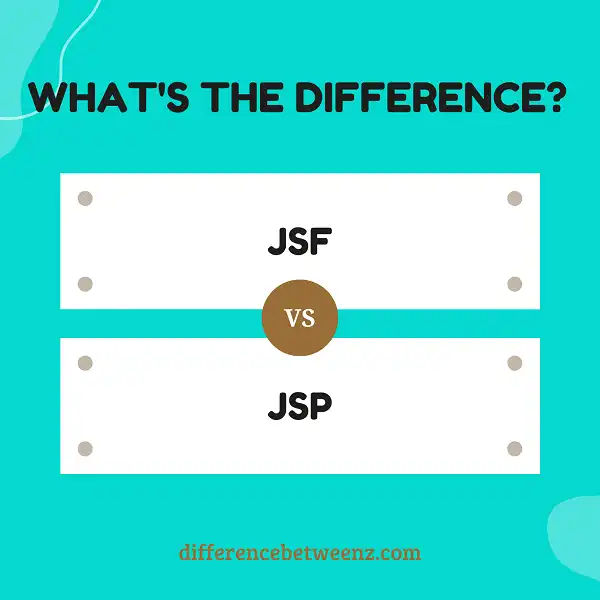As a Java developer, you may be wondering what the difference between JSF and JSP is. Both frameworks are used for creating web applications, but they have different purposes. JSP is a more general-purpose framework that can be used for any type of web application, while JSF is specifically designed for creating user interfaces. If you’re looking for a framework that is versatile and easy to use, JSP is the better option. However, if you need a framework that can help you create rich user interfaces, JSF is the better choice.
What is JSF?
JSF stands for JavaServer Faces. It is a component-based framework for building user interfaces (UIs) for web applications. JSF components are similar to the components in JSP technology, but they have additional features that make them more suited for use in a JSF application. JSF provides a standard set of UI components, which are used to construct a JSF page. In addition, JSF provides a set of APIs that allow you to interact with the JSF components and manage the state of the components. JSF also provides a set of tags that can be used to generate the JSF component tree and render the JSF components on a JSP page. Finally, JSF provides a set of renderers that are used to render the JSF components on the client.
What is JSP?
JSP (JavaServer Pages) is a technology that helps software developers create dynamically generated web pages based on HTML, XML, or other document types. JSP is part of the Java EE standard and was first released in 1999. JSP pages are compiled into Java servlets and run on a JSP container, such as Apache Tomcat or Jetty. JSP technology allows web developers to quickly create custom web pages without having to hand-code servlets. In addition, JSP pages can be easily integrated with other technologies such as JavaBeans, Enterprise JavaBeans (EJBs), and Struts. JSP is a versatile technology that can be used for everything from small personal websites to large corporate applications.
Difference between JSF and JSP
JSF and JSP are two popular technologies used for developing web applications. JSF is a JavaServer Faces technology, while JSP is a JavaServer Pages technology. JSF is more modern than JSP, and it offers a number of advantages over JSP. JSF pages are easier to write and maintain, and they provide better performance than JSP pages. In addition, JSF offers a number of features that JSP does not, such as skinning and templating. However, JSP is still widely used, due to its simplicity and ease of use. Many developers prefer JSP because it requires less code than JSF, and it is easier to learn. There are also a number of JSP-specific frameworks that make development faster and easier. As a result, JSP is likely to remain popular in the years to come.
Conclusion
In conclusion, JSF is a more powerful and sophisticated technology when compared to JSP. It offers a number of features that make development easier and faster, while also providing a more stable and secure platform for web applications. If you are considering using JavaServer Faces for your next project, be sure to take advantage of all that it has to offer.


